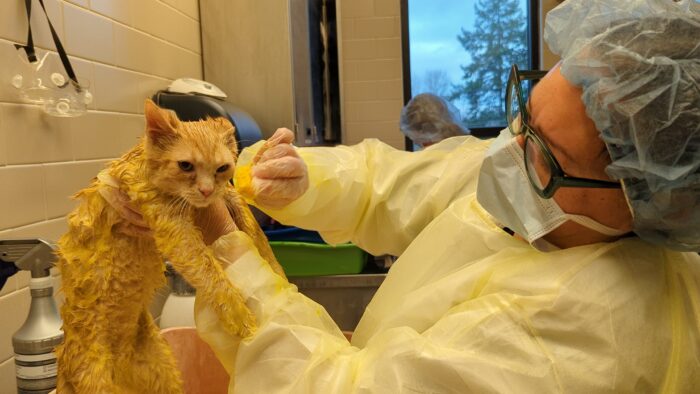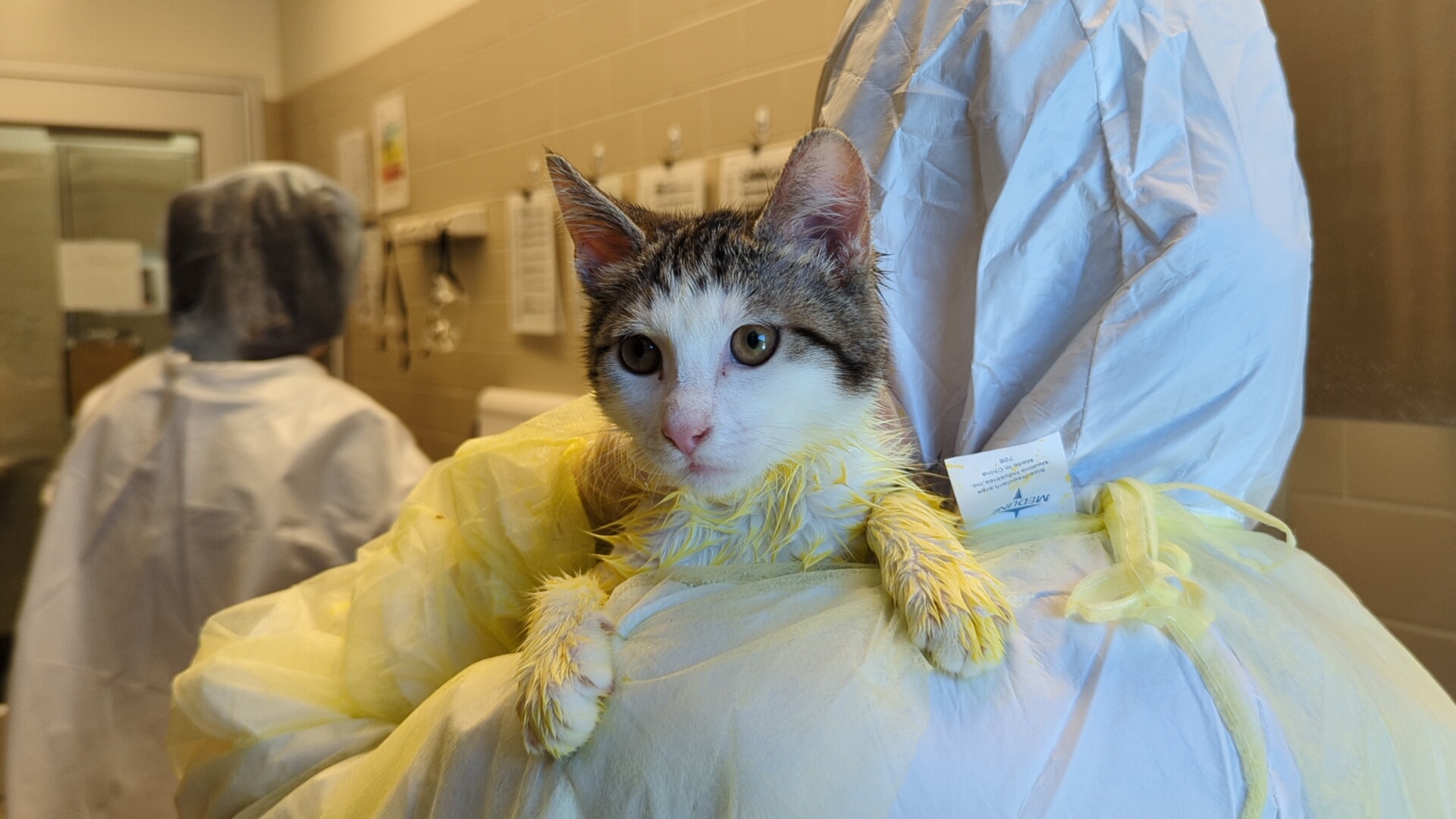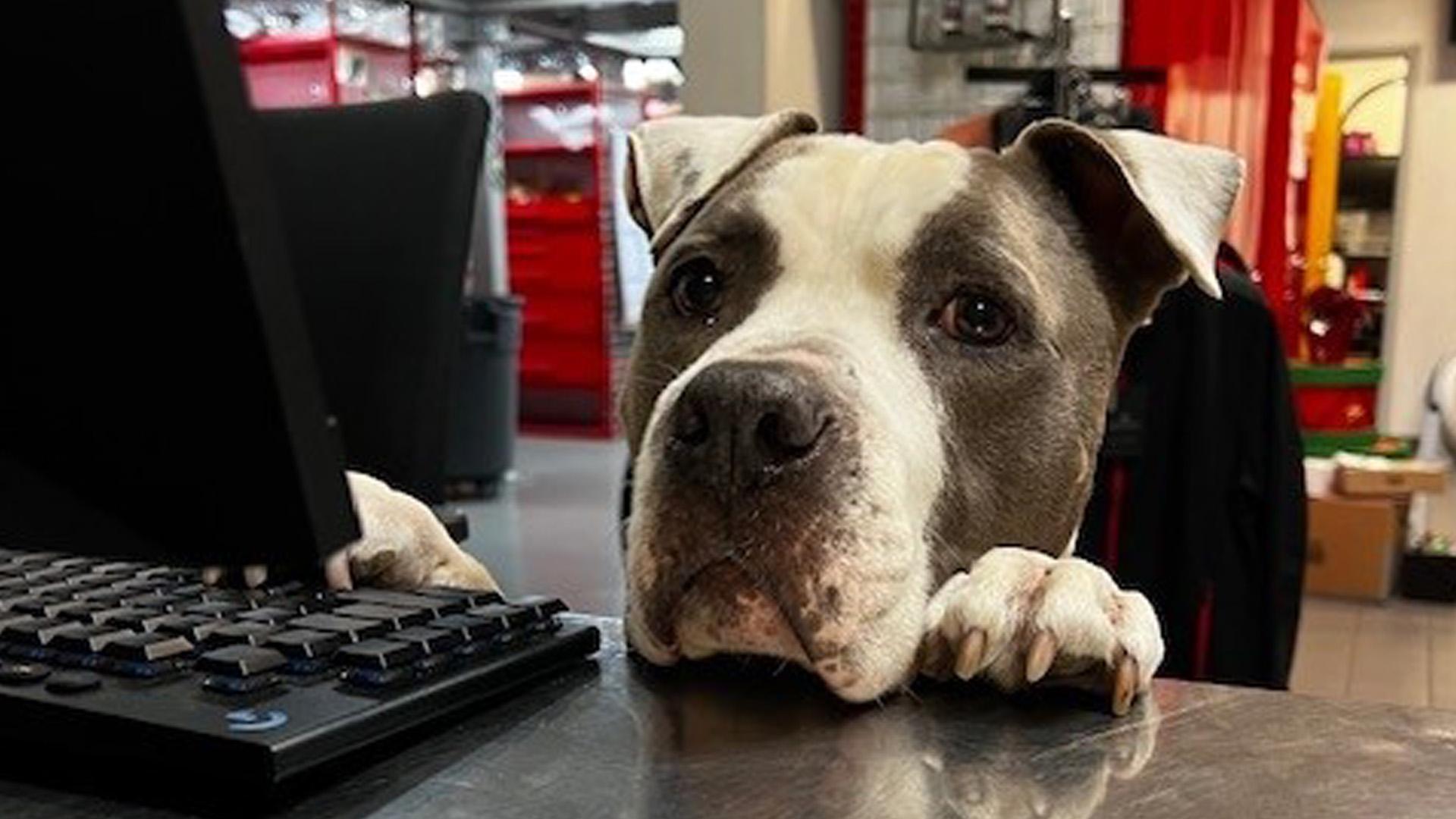Ringworm is an easily treatable fungal infection that causes hair loss and patches of dry, scaly and irritated skin, and it is highly common in animal shelters. Unfortunately, many animal welfare organizations lack the resources and capacity to isolate pets with ringworm, which can result in euthanasia to stop the spread of ringworm to the rest of the shelter population.
Seattle Humane is fortunate enough to have dedicated spaces to isolate and treat pets with ringworm and other transmissible infections, and it’s not often that our ISO unit doesn’t have a few cats with those telltale rashes.
While cats with ringworm are safe in our care, it can take up to three months for them to clear their infections, and that’s time better spent in a loving home.
That’s why Seattle Humane has a Ringworm Foster-to-Adopt (FTA) program that sets families up with everything they need to care for these cats and kittens in their new homes.
Seattle Humane’s Foster team trains FTA parents in our ringworm protocol and supports them throughout the pet’s treatment in partnership with our veterinary team. Once the pet has a negative culture and is ringworm free, they can come back to our campus for spay/neuter surgery before their adoption is processed. If they are already spayed/neutered, they can stay right where they are–with their new families.

The treatment a cat with ringworm receives at home is no different than at the shelter, but with the benefit of not being isolated in a stressful environment and having more time to gain socialization skills with their prospective new family. And you get the chance to learn more about the cat’s personality before deciding whether to adopt! Did you know adoption fees are waived for FTA cats and dogs with ringworm?
Ringworm foster parents need to administer an oral antifungal medication and twice-weekly baths in a medicated solution. They will also use a toothbrush on the cat’s skin once weekly to gather a sample that will be used to track the progress of the ringworm treatment. Pets with ringworm will still need to be kept in a separate space, such as a spare bathroom, until their infection has cleared. Anyone coming in contact with them will need to wear personal protective equipment (PPE) to reduce the risk of spreading the ringworm.
Ringworm FTA not only helps cats clear their fungal infections faster on average than in a shelter environment, but it also frees up space in our isolation unit for our shelter care staff to help more vulnerable pets.
Please reach out to our Foster team at foster@seattlehumane.org if you are interested in learning more about fostering cats or kittens with ringworm. If you’re interested in fostering-to-adopt a cat or kitten with ringworm, please visit us during our open adoption hours! Can’t care for a ringworm pet but still want to help? Consider supporting this work by purchasing a gift from our Amazon Wish List.






